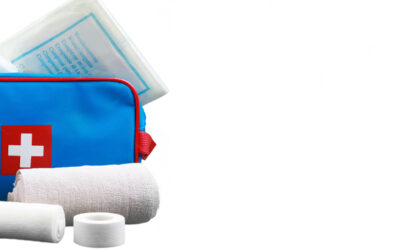Five At Home Health Checks for Men
Men love to know stuff. They generally love trivia nights, random facts and obscure knowledge, and they love to share and display their expertise. This skill extends to almost every aspect of a man’s experience, except his health.
Sadly, this oversight can result in delayed seeking of medical help or advice, unhealthy behaviours or decisions and consequent poor health outcomes (which is medical speak for ‘getting really crook’).
Men typically take better care of their cars, tools and toys more than they do of their own bodies. Perhaps they are more aware of the signs of wear or faults and better understand the implications on performance and costs of not taking appropriate action before damage is done.
Yet there is so much that we can do from home to monitor potential health problems and reduce future loss of productivity and unnecessary expenditure. Here are a few simple home health checks to save you time, money and worry.
1. Research your family history
Ask about your family history of health problems, especially causes of death. You have a genetic aptitude for developing similar problems and knowing your risks allows you to be smarter and make changes dependent on your family history. For example, heart disease, prostate cancer and depression can have an inherited component which can be sabotaged by improvements in lifestyle, nutrition, and physical activity.
2. Get measuring
For men, a girth of 95cm or more is associated with increased risk of high blood pressure, bowel cancer and diabetes. Measure around your belly at the level of your navel with a cloth tape (not the one from your tool box!). Don’t breathe in, just stand tall. It can sometimes be easier if someone else does the measuring for you, to make sure you’re not bent over. Excess girth is typically an intake problem, this can be caused when you are consuming the wrong diet and indulging in too much of the good stuff.
3. Get some shut eye
Monitor your sleep duration and quality to ensure you are getting your full quota every, or most, nights. Sleep is important for both physical and mental health, so a sleep diary (noting how long, how restful and how tired through the days) can track your changes over time. Poor sleep is associated with poor health outcomes (e.g. weight gain, diabetes), especially sleep apnoea (collapse of the walls of the throat while sleeping resulting in altered oxygen metabolism). Your doctor can refer you for a sleep study to diagnose any obstructed breathing while sleeping and determine appropriate treatment options.
4. Pees & poos, take note of your habits on the loo
The simple act of taking a leak can tell you so much. For example, difficulty starting flow or incomplete emptying could be a sign of prostate problems. The colour of your urine should be pale yellow (well hydrated) and it should not have a smelly odour. The number of times you empty your bladder, especially overnight (less than twice is OK) and the volume of urine (250-400ml) can change over time. If you start to see significant changes in your bladder patterns or volumes, alert your GP.
If you are over 50, the government will send you a kit for bowel cancer screening every couple of years. Early detection is critical for a cure and this free testing can save lives. Your bowel habits can also reveal problems; the consistency of your stools, the ease of passing them and the regularity or frequency all reveal secrets of your diet and how your body is coping with what you are consuming . If there are changes in any in your bowel habits that last beyond the effects of a dodgy curry, it’s your job to tell your doctor at your next check-up.
5. Test your agility
Can you lie down on the floor, flat on your back, then get up again without using any furniture or walls for support? This is a basic test of your agility and anti-gravity strength. It reflects muscle and bone health, joint mobility and balance. The ability to get off the floor may save your life one day. When you test yourself, have something or someone nearby to help you up in case you become stranded.
What else can I do?
There are many other home tests, such as blood pressure, body weight, resting heart rate and exercise recovery test. Choose a few that work for you and target your known risk factors. Keep records of your results and make sure your health providers are aware of any changes or trends that you notice or become concerned about.
It is not un-manly to know how your most important piece of equipment is performing, nor is it a sign of weakness to tell your doctor about it. In fact, he or she will be impressed at your insight and knowledge, and you know we love that.
A/Prof Craig Allingham
Men’s Health Physiotherapist
More health advice
View our wide range of health advice, tips and recommendations by visiting our health articles or checking out our top health articles below.
Optimising Bladder and Bowel Health Through Diet and Hydration
Optimising Bladder and Bowel Health Through Diet and HydrationBy: Jane Clarke07 May 2025EssentialsBladder and bowel dysfunction can result from a wide range of contributing factors, including diet and fluid intake. Even when the primary cause lies...
How to Treat and Prevent Scarring
First Aid for Burns:How to Treat and Prevent ScarringBy: Tracey Aldis29 April 2025EssentialsBurns are common injuries, especially in the kitchen.1 Many burns are not serious, and taking quick action can make a big difference. This guide covers the...
How to create a home wound care kit: step-by-step guide
How to create a home wound care kit: step-by-step guideBy: Tracey Aldis29 April 2025EssentialsMost injuries occur at home1, but minor wounds usually do not need medical attention. Having a wound care kit for home use allows you to treat small...
This article is sponsored by Independence Australia, a social enterprise that provides choices for people living with a disability or other personal need, enabling them to regain and retain their independence within a supportive community.
If you would like to support the valuable work we do, you can help us to provide choice for people living with a disability or other personal need by Shopping online with us or Making a donation.



